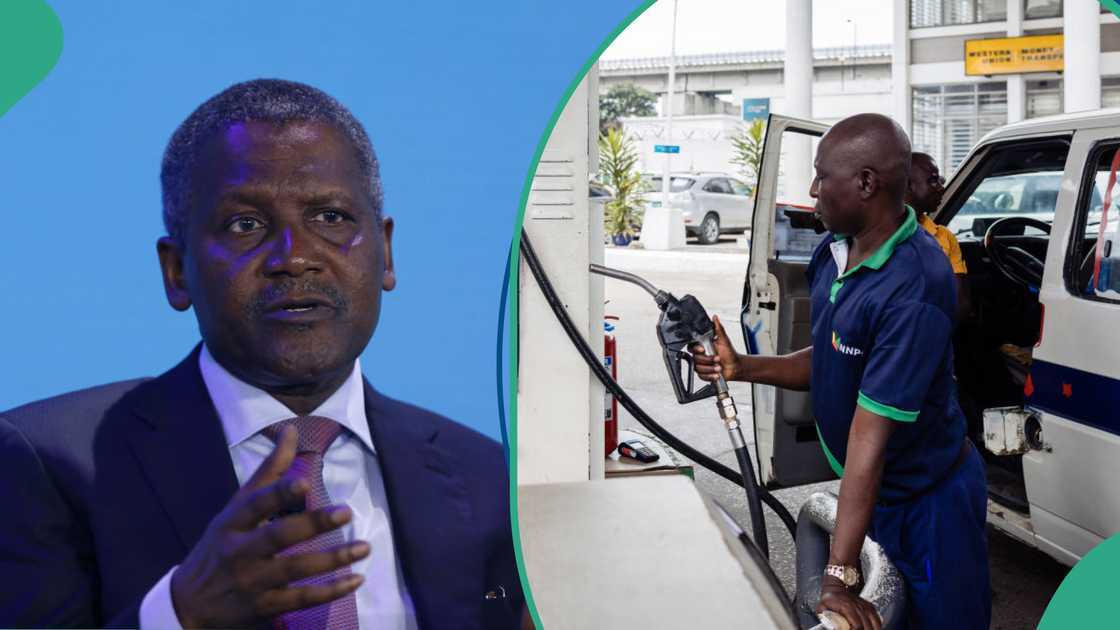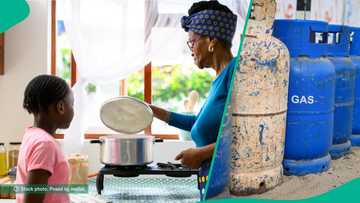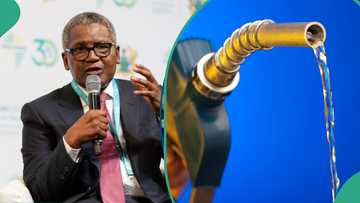Senegal’s Refinery Turns to Nigeria’s Crude Despite Producing 100,000 Barrels Daily
- Another African country has rushed to Nigeria, the continent’s biggest oil producer, for crude to power its refinery
- Despite being an oil-producing country, it relies heavily on Nigerian crude to meet its refinery’s daily output
- The development comes as Nigeria has ramped up its oil production, which hit 1.7 million barrels daily recently
Pascal Oparada, a reporter for Legit.ng, has over ten years of experience covering technology, energy, stocks, investment, and the economy.
Senegal, Africa’s newest oil producer, still relies on Nigeria’s crude to power its only refinery.
The 30,000-barrel-per-day (kbd) Dakar Refinery has increasingly turned to Nigeria’s Erha crude as its main feedstock, highlighting a paradox: Senegal produces oil but cannot refine it at home.
According to a new report by industry tracker Kpler, Senegal’s Sangomar field currently produces around 100,000 barrels per day of medium sour crude (31° API, 1.0% sulphur).

Source: Getty Images
Almost all of it is exported to Europe, with Spain, Italy, and the Netherlands being the main buyers.

Read also
Arthur Eze expands oil empire: Atlas Oranto seals $800m Liberian oil deal after Venezuela move
Why can’t Senegal use its own crude?
The challenge lies in refinery design. Refineries are built to process specific crude types, and Dakar’s plant was designed for light, sweet crude. Sangomar’s heavier, sulphur-rich oil is unsuitable unless blended, making it impractical for the refinery.
Instead, the Dakar facility has relied on Nigeria’s Erha grade (36° API, 0.2% sulphur), which matches its configuration. Imports of Erha into Dakar have averaged 30,000 barrels per day in recent months, according to Kpler.
This reliance positions Nigeria as a strategic energy partner for Senegal despite the latter’s oil-exporting status.
Heavy reliance on imported Fuels
Nigeria’s crude may power Senegal’s refinery, but it still does not fully meet the country’s energy needs. Between 2024 and 2025, Senegal imported 90,000–100,000 barrels per day of refined products, with 50–60% coming from Russia.
These imports included gasoil, diesel, and fuel oil.
The dependence on Russian supplies underscores Senegal’s dual vulnerability—dependent on Nigeria for refinery feedstock and on foreign refiners for finished petroleum products.
The Sangomar expansion and future outlook
Senegal is banking on Phase 2 of the Sangomar project, which is under review and expected to bring 33 additional wells online by 2027.
However, Kpler forecasts that production will remain steady at around 100,000 barrels per day for the next few years.
This means Dakar’s refinery will continue to depend heavily on Nigeria’s light crude to stay operational. At the same time, Russia’s dominance in Senegal’s refined product market is unlikely to fade soon.
Nigeria’s own refining struggles
Ironically, Nigeria—while meeting Senegal’s crude needs—faces its own refinery shortfalls. The Dangote Refinery, Africa’s largest, has complained of insufficient local crude supply and has increasingly turned to the United States for feedstock.
This underscores the broader challenge across Africa: oil-rich nations remain import-dependent due to misaligned refinery capacity, supply disruptions, and global competition for lighter crude grades.
What does this mean for Africa’s energy security?
Senegal’s reliance on Nigerian crude and Russian refined products mirrors the wider instability in Africa’s energy sector. Even as new producers emerge, structural mismatches between crude output and refinery configurations force countries to depend on imports.

Read also
APC gov discusses how his colleagues have enough money to tackle insecurity: "You've no excuse"
Until investments are made to modernise refineries and align them with local crude qualities, countries like Senegal and even Nigeria will remain trapped in a cycle of exports and imports, fueling questions about long-term energy security.
Nigeria's crude output surges
Nigeria, through the Nigerian Upstream Petroleum Regulatory Commission (NUPRC), reported that Nigeria’s crude oil production has improved significantly.
The commission said the country’s oil output hit 1.71 million barrels per day in July, which surpassed OPEC's quota of 1.5 mbpd.
A prior report by Legit.ng disclosed that Africa’s largest refinery, Dangote Refinery, signed a two-year crude oil deal with the Nigerian National Petroleum Company Limited (NNPC) under the Naira-for-Crude deal.

Source: Getty Images
The deal, which came after Dangote suspended sales of petrol in naira, will last until 2027, officials say.
Full list of countries buying Nigerian crude oil in 2025
Legit.ng earlier reported that the National Bureau of Statistics has revealed that Nigeria earned more than N24.9 trillion from exporting crude oil and petroleum gas in the first half of 2025.
The amount is, however, lower than the N28 trillion recorded in the same period of 2024.
The NBS disclosed the figures in its Q2 foreign trade in goods statistics report. Read more: https://www.legit.ng/business-economy/economy/1674365-list-10-countries-buying-nigerian-crude-oil-amount/
Source: Legit.ng



